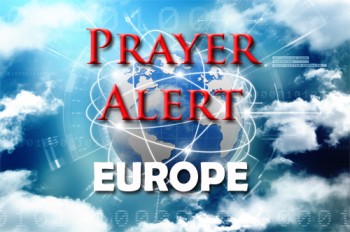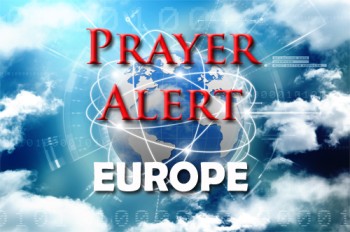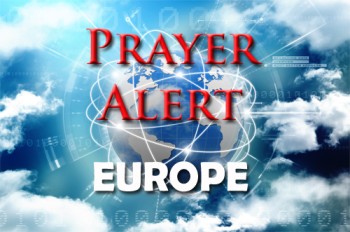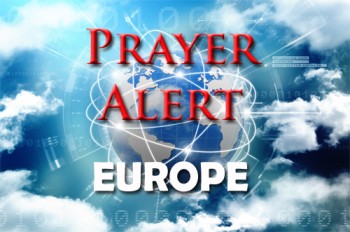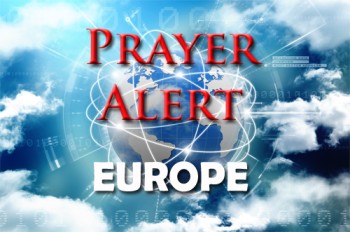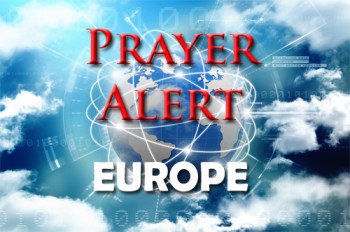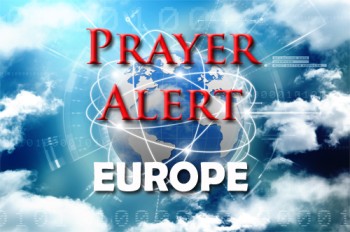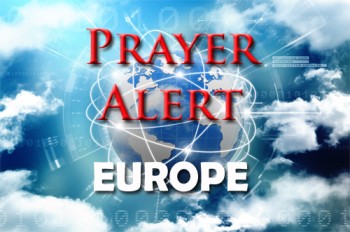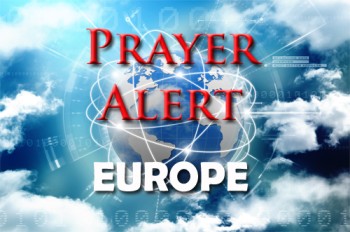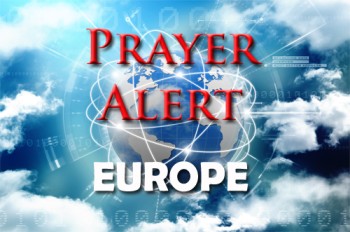Displaying items by tag: Europe
Poland / Ukraine: agreement on exhumation of WW2 massacre victims
Tensions between Poland and Ukraine have been strained for years over the Volhynia Massacre, in which Ukrainian paramilitary forces killed around 100,000 Polish civilians during World War 2. Polish prime minister Donald Tusk has now announced that exhumations of the bodies will begin, thanks to cooperation between Poland and Ukraine’s cultural ministries. While Poland describes the massacre as genocide, Ukraine disputes this, viewing it as part of a broader conflict. The dispute intensified after Ukraine banned the search for Polish victims in 2017, but recent efforts, including a joint commemoration by presidents Duda and Zelensky, aim to heal wounds. Meanwhile, Tusk has accused Russia of plotting terrorist acts against Western airlines : see
Georgia: former PM brutally attacked
Giorgi Gakharia, former prime minister and leader of the opposition party For Georgia, is in hospital with facial and head injuries, after a brutal assault by several men in a hotel lobby. His health was later confirmed to be stable. His party, calling this a politically motivated attack, accused the government of attempting to intimidate opposition voices. Georgia’s ongoing political crisis intensified after the disputed October parliamentary elections. Protests against the ruling Georgian Dream (GD) party have erupted in Tbilisi and other cities, particularly after the government’s announcement to delay EU accession talks. The protests have led to widespread crackdowns, including arrests and beatings, drawing criticism from human rights groups. The attack on Gakharia follows similar assaults on opposition members and journalists.
Ukraine: different attitudes from Trump and Biden
Donald Trump has expressed sympathy for Russia’s opposition to Ukraine joining NATO, suggesting such membership provokes Moscow and risks escalating conflict. Trump criticised the Biden administration’s support for Ukraine’s NATO ambitions, stating that Russia has long opposed NATO’s presence near its borders. Meanwhile, the Biden administration is preparing a significant final weapons package for Ukraine before the transition of power. While details remain unclear, it follows earlier military aid, with most promised equipment already delivered. Ukraine’s foreign minister announced the rescheduling of a meeting with Trump’s special envoy, emphasising the need for a meaningful dialogue. On the battlefield, tensions have escalated. Ukraine reported 94 clashes in Russia’s Kursk region, double the prior day’s count, and announced a new offensive. Fighting persists in Kurakhove, where Russia claims control, but Ukrainian forces dispute this, accusing Russia of using scorched-earth tactics. Both nations report heavy losses, but independent verification remains elusive.
France: Le Pen’s death highlights his daughter’s rise
Jean-Marie Le Pen, founder of France’s far-right National Front (FN), has died at 96, leaving behind a divisive legacy. Known for incendiary rhetoric, he propelled anti-immigration nationalism into mainstream French politics. His controversies included dismissing Nazi gas chambers as a ‘detail’ of history and multiple convictions for inciting racial hatred. Although he never held major office, his influence reshaped French political discourse, making immigration central to national debates. His death comes as his daughter, Marine Le Pen, builds momentum toward possibly becoming France’s next president. Since expelling her father from the party in 2015, she has worked to rebrand FN (now the National Rally) by moderating policies and rhetoric. Abandoning her father’s hardline stances on the EU and social issues, she has appealed to a broader electorate. While her tone is subtler, critics argue her nationalism echoes his. Recent polls suggest she would easily win a presidential election if it was held now - a sign of her continued ascent in French politics.
Azerbaijan: Putin urged to accept responsibility for air crash
President Ilham Aliyev has urged Russia to accept responsibility for the Christmas Day crash of an Azerbaijan Airlines plane, which killed 38 of the 67 onboard. The flight, from Baku to Grozny, was diverted from Chechnya and crashed in Kazakhstan. Vladimir Putin has apologised but stopped short of admitting fault, attributing the tragedy to Russian defences countering Ukrainian drone attacks. Aliyev criticised initial Russian explanations, including claims of a gas cylinder explosion and bird strikes, as ‘foolish and dishonest’. He acknowledged the incident was accidental but demanded that Russia admit guilt, punish those responsible, and provide compensation: he commented, ‘No one would have thought that in a friendly country, our plane would be fired at from the ground’. The crew members were honoured for landing the plane in a way that allowed 29 people to survive, even though it led to their own deaths.
Ukraine stops transporting gas to Europe
Ukraine has decided to stop transporting Russian gas to Europe after a deal with Moscow expired, marking a historic and symbolic shift in policy. As a result, both countries will incur financial losses: Ukraine will forfeit $800 million annually in transit fees, while Russia’s Gazprom will lose nearly $5 billion in sales. Europe, which has reduced its dependence on Russian gas from over 40% in 2021 to about 8% in 2023, will now receive Russian gas solely via the Turkstream pipeline. To compensate, the EU has increased imports of liquefied natural gas from the USA and pipeline gas from Norway. While analysts say Europe is unlikely to face energy shortages, refilling reserves may prove challenging, potentially driving up gas prices. Some regions have already reduced heating supplies, highlighting the ripple effects of the expired transit deal. Meanwhile, Russia and Ukraine have concluded one of their largest prisoner exchanges since the war began: see
Russia: senior general assassinated
On 17 December Lieutenant-general Igor Kirillov and his assistant were killed in Moscow by a Ukrainian agent in a targeted assassination, intensifying a new front in the conflict. Kirillov, the head of Russia’s nuclear, chemical, and biological defence forces, died in an explosion outside his home caused by a remotely detonated bomb hidden in a scooter. The Ukrainian security service claimed that Kirillov was ‘a legitimate target’ due to his alleged war crimes, including the use of banned chemical weapons on Ukrainian troops. Since February 2022, Russia is said to have used chemical weapons over 4,800 times under his leadership. This marks a continuing trend of Ukraine’s covert operations to assassinate high-ranking Russian officials and disrupt their military efforts. While Ukrainian intelligence rarely takes credit for such actions, these killings are seen as a psychological tool to weaken Russia's morale and send a message about the cost of war crimes.
France: fifty men found guilty of mass rape in landmark case
In a landmark case in Avignon, 72-year-old Dominique Pelicot and fifty co-defendants have been found guilty of mass rape against his wife Gisele over a decade. Dominique, who admitted to drugging and allowing strangers to abuse his wife while filming the assaults, was sentenced to twenty years in prison, with no parole until two-thirds of the sentence is served. Other defendants received sentences ranging from four to eighteen years. Gisele, who waived her anonymity, demanded the horrifying footage be shown in court, stating, ‘I’ve done nothing wrong. They are the ones who must be ashamed.’ Her courage has made her a feminist icon in France, inspiring other survivors to speak out. Supporters cheered as guilty verdicts were announced. The trial, which saw Gisele face her abusers in court, has shaken the nation. Her children stood by her during the proceedings, underscoring the profound impact of her resilience on justice and awareness.
Germany: early election after no-confidence vote
The chancellor, Olaf Scholz, has lost a vote of no confidence in the German parliament, resulting in an early election which will take place on 23 February. Although he expected the loss, Scholz saw this as an opportunity to rejuvenate his party’s fortunes; after the collapse of his three-party coalition government in November, his minority administration has struggled to pass legislation. His Social Democratic Party (SDP) is lagging in the polls, while the conservative Christian Democratic Union (CDU) seems poised to return to power. Following the vote, the president has 21 days to dissolve parliament. This early election campaign will focus on key issues such as the economy, immigration, and taxes. The rise of radical parties, like the hard-right Alternative for Germany (AfD) which is currently polling at almost 20%, adds complexity to coalition-building efforts, as the mainstream parties struggle to form a stable government.
Ukraine: Russia could launch hypersonic missile ‘within days’
US intelligence suggests Russia may launch its experimental Oreshnik hypersonic missile against Ukraine within days. First used in an attack on Dnipro in November, the missile displayed astonishing speed and precision, striking a military facility with devastating fireballs. Despite its limited number and smaller warhead compared to other missiles, its deployment is seen as an intimidation tactic rather than a battlefield game-changer. Vladimir Putin boasted about its capabilities on national television, warning NATO allies that supporting Ukraine with longer-range weapons could provoke similar strikes on their territories. This statement followed Putin's signing of a revised nuclear doctrine lowering the threshold for nuclear weapon use, allowing for retaliation even against conventional attacks supported by nuclear powers. Meanwhile, tensions rise as the USA loosens restrictions on Ukraine’s use of long-range weapons to counter Russian aggression.
